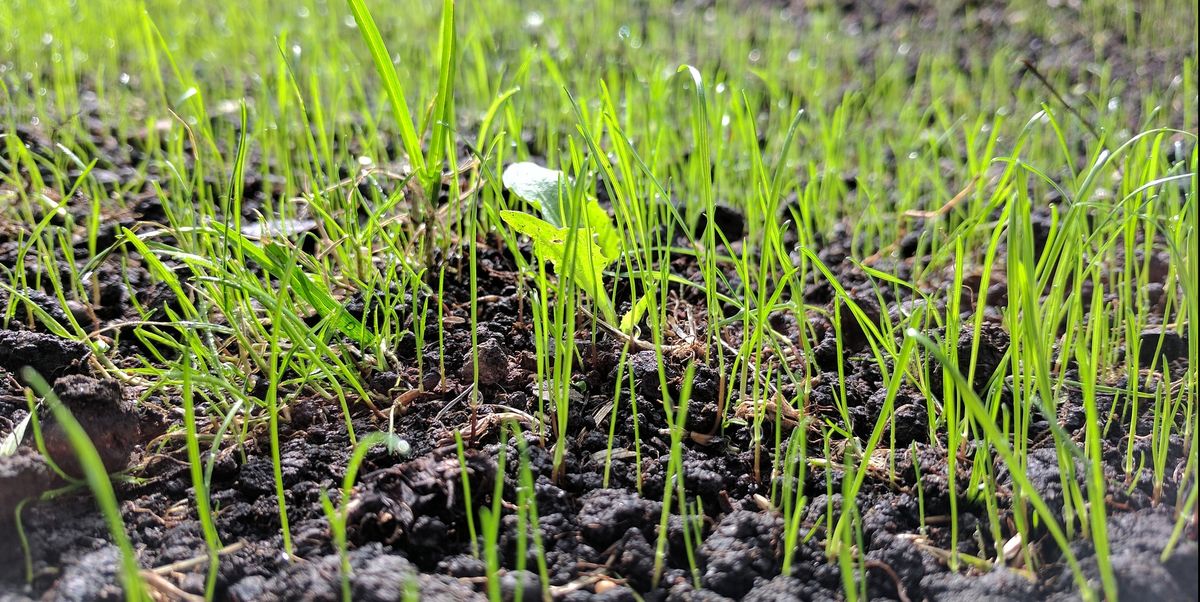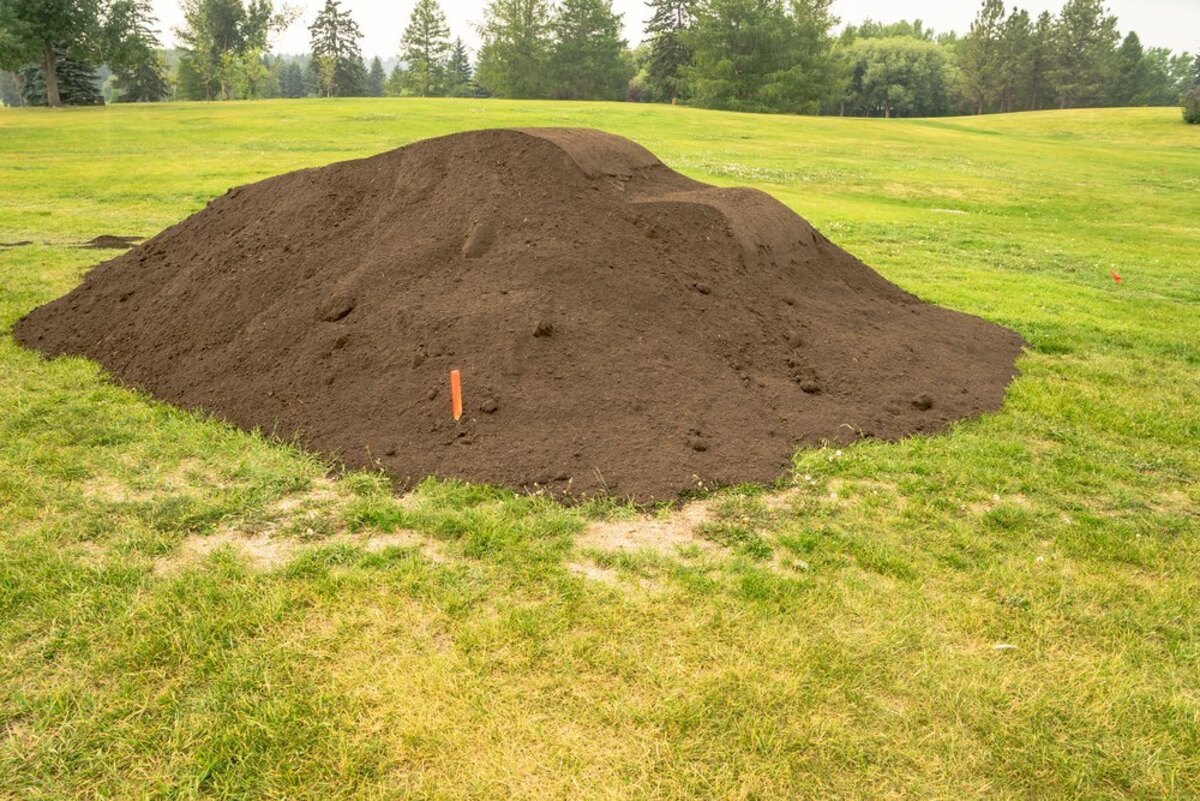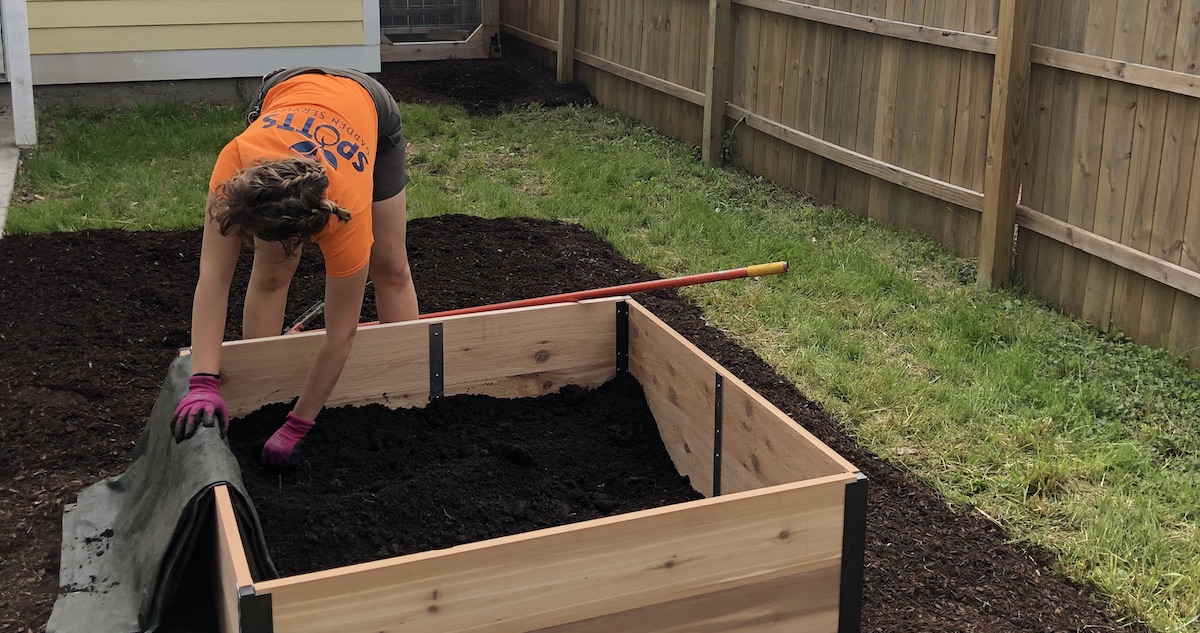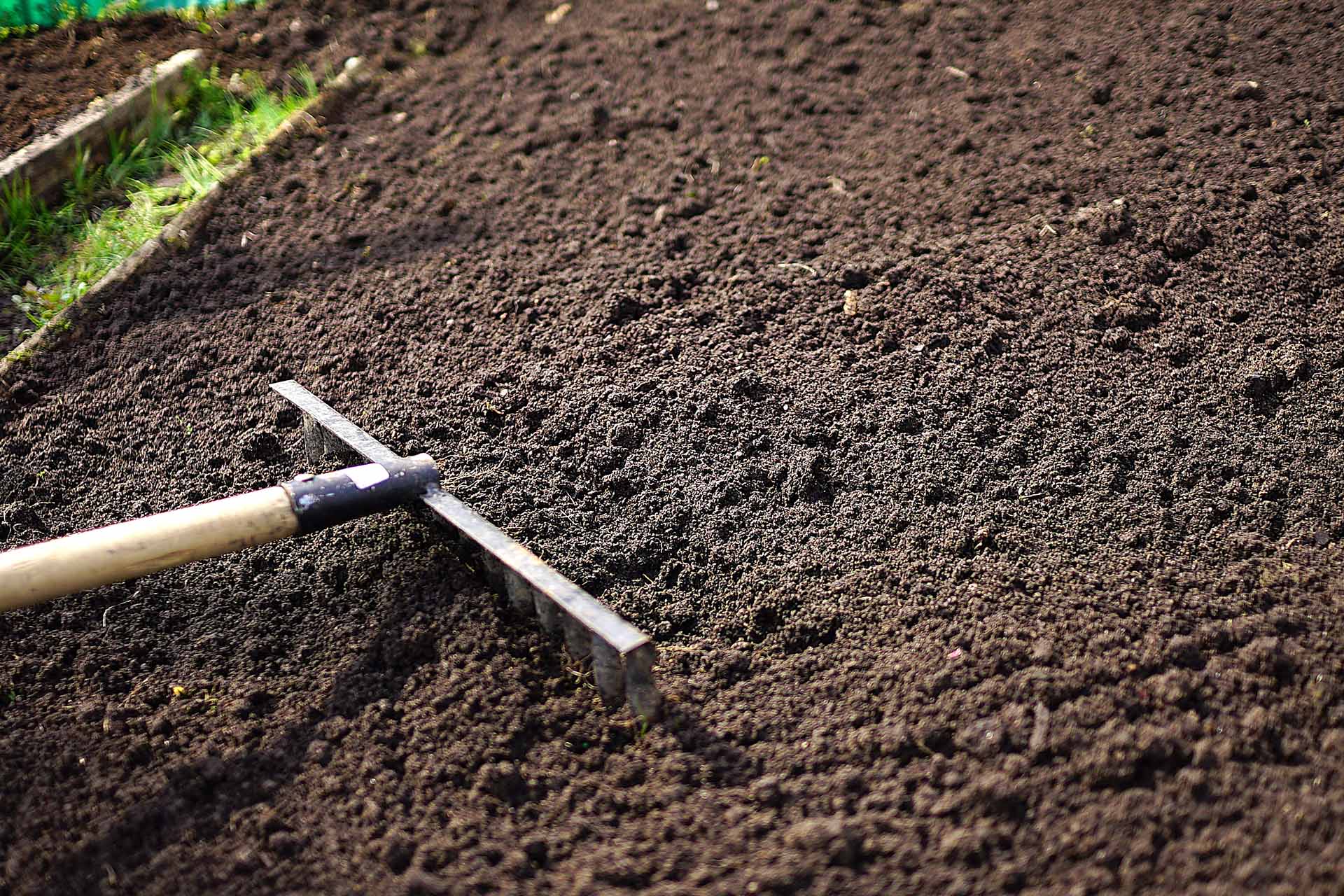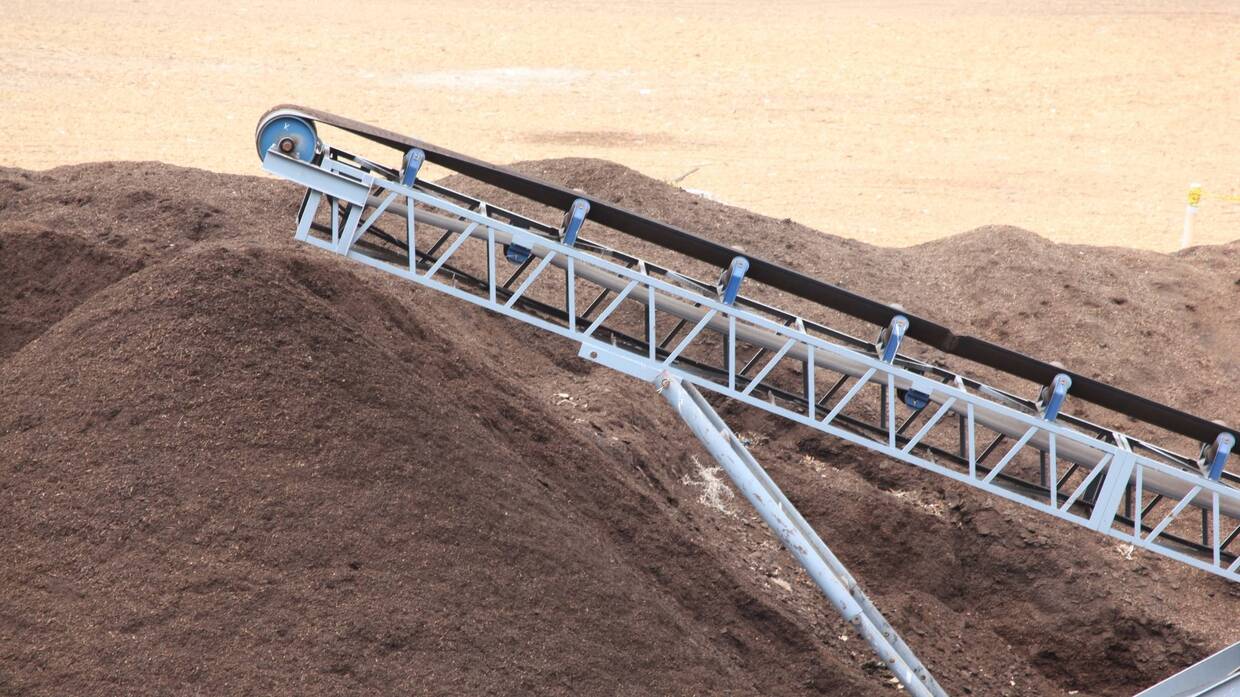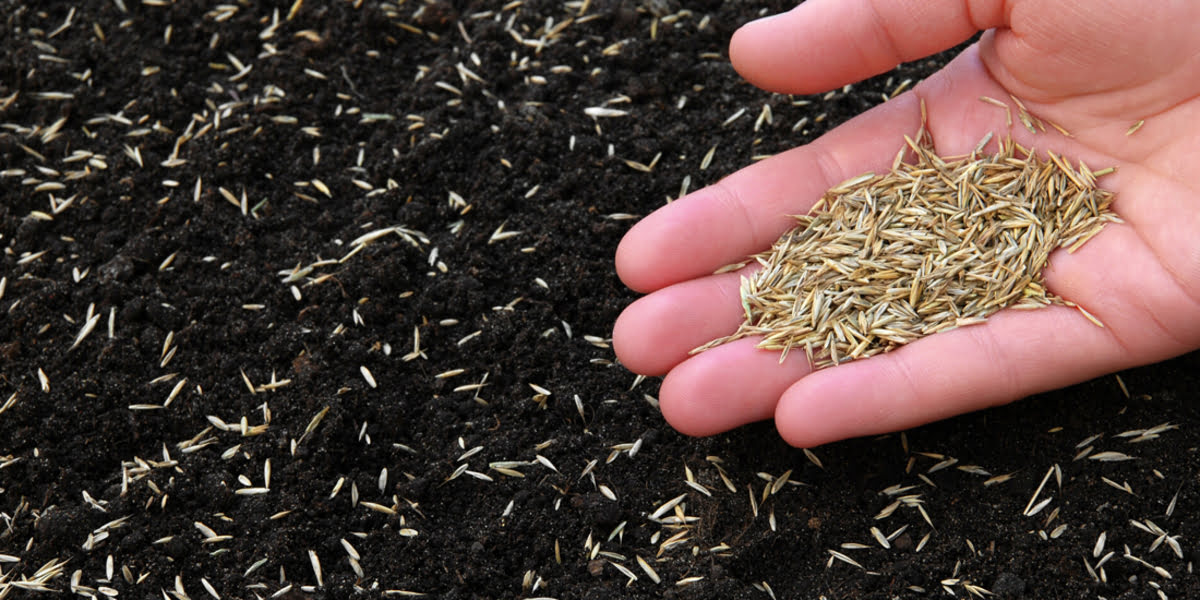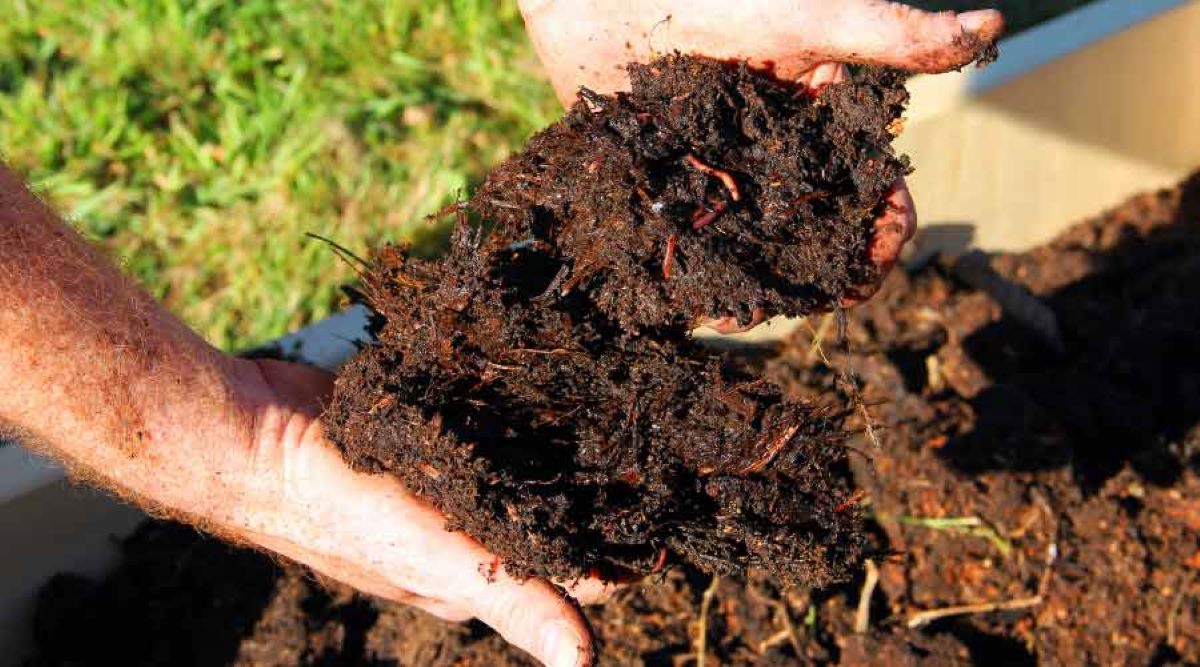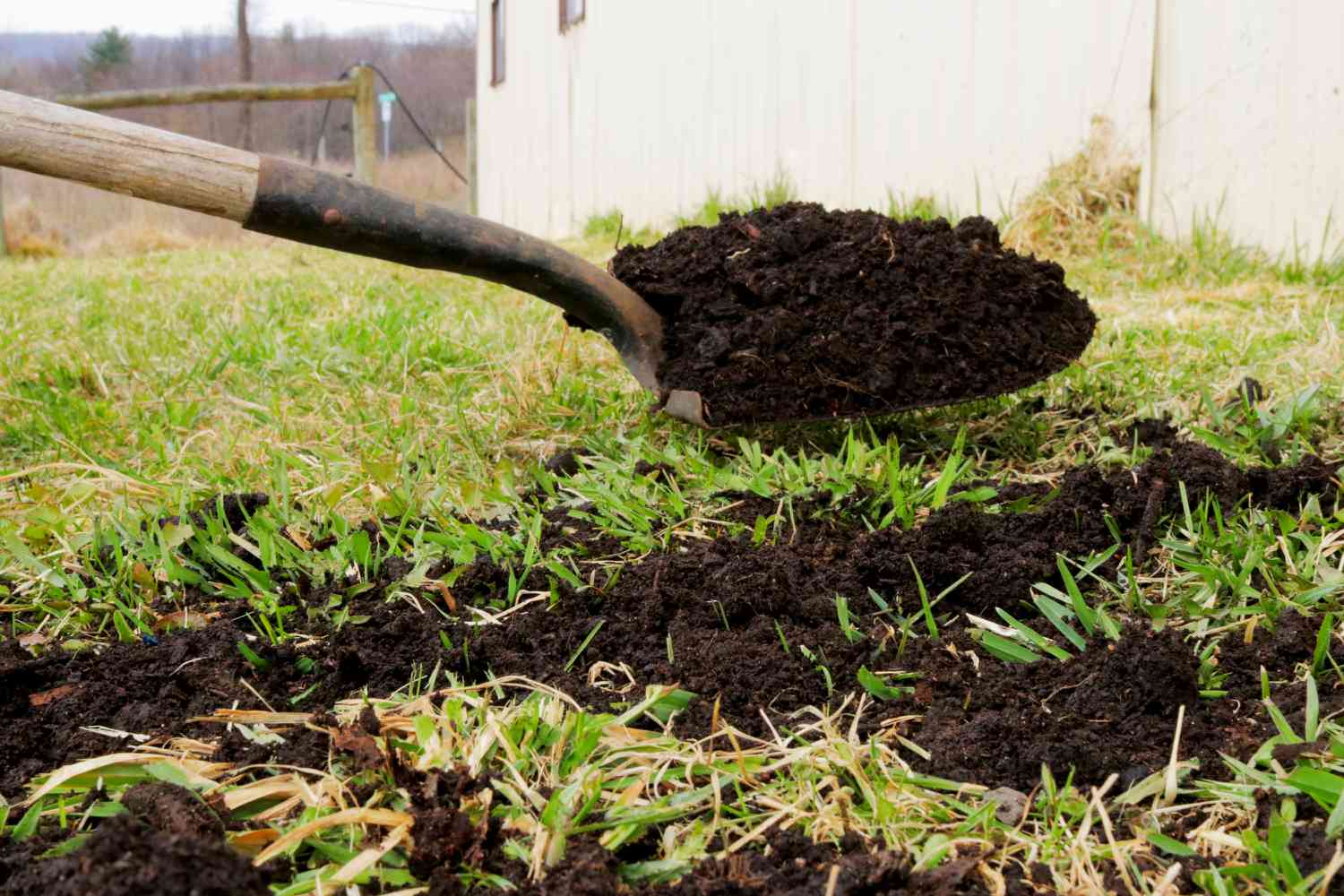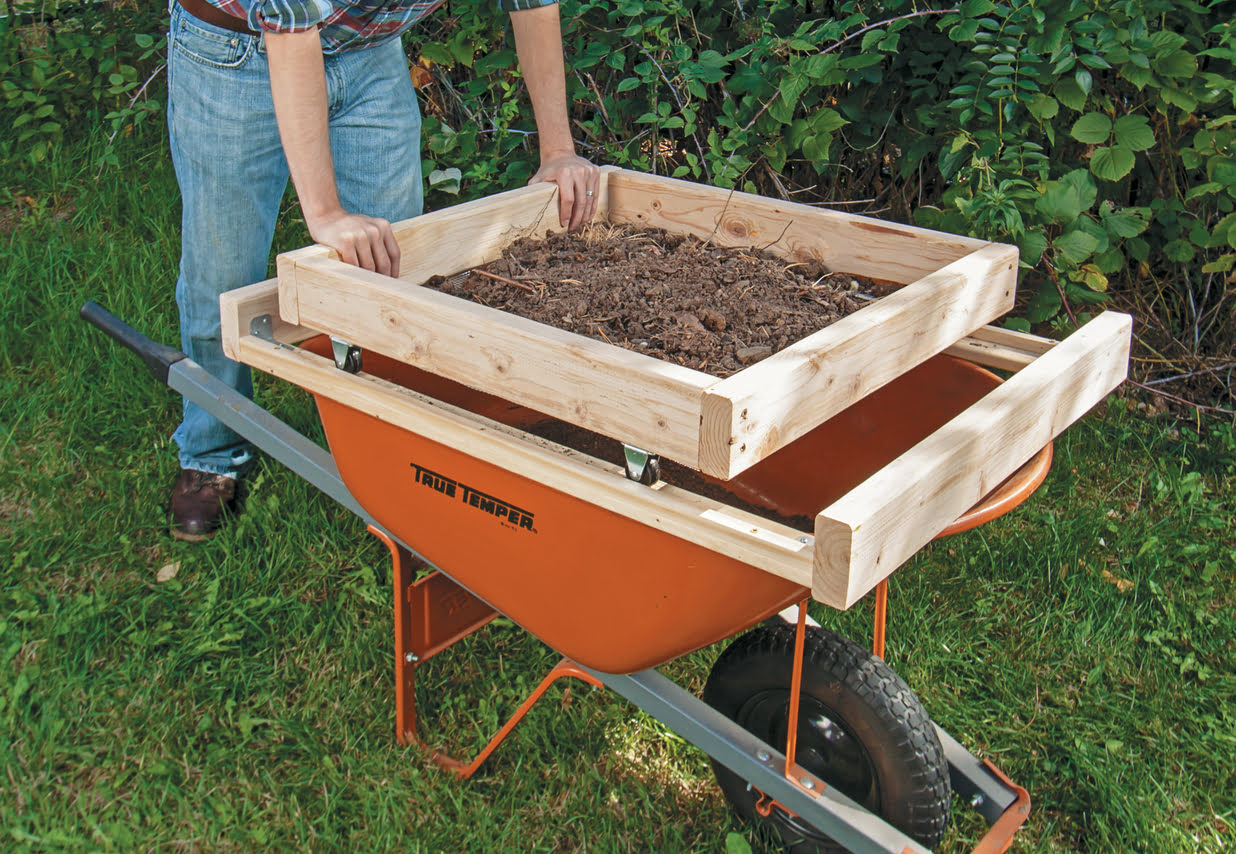Home>Gardening Basics>Understanding Soil>How Much Is Topsoil A Ton
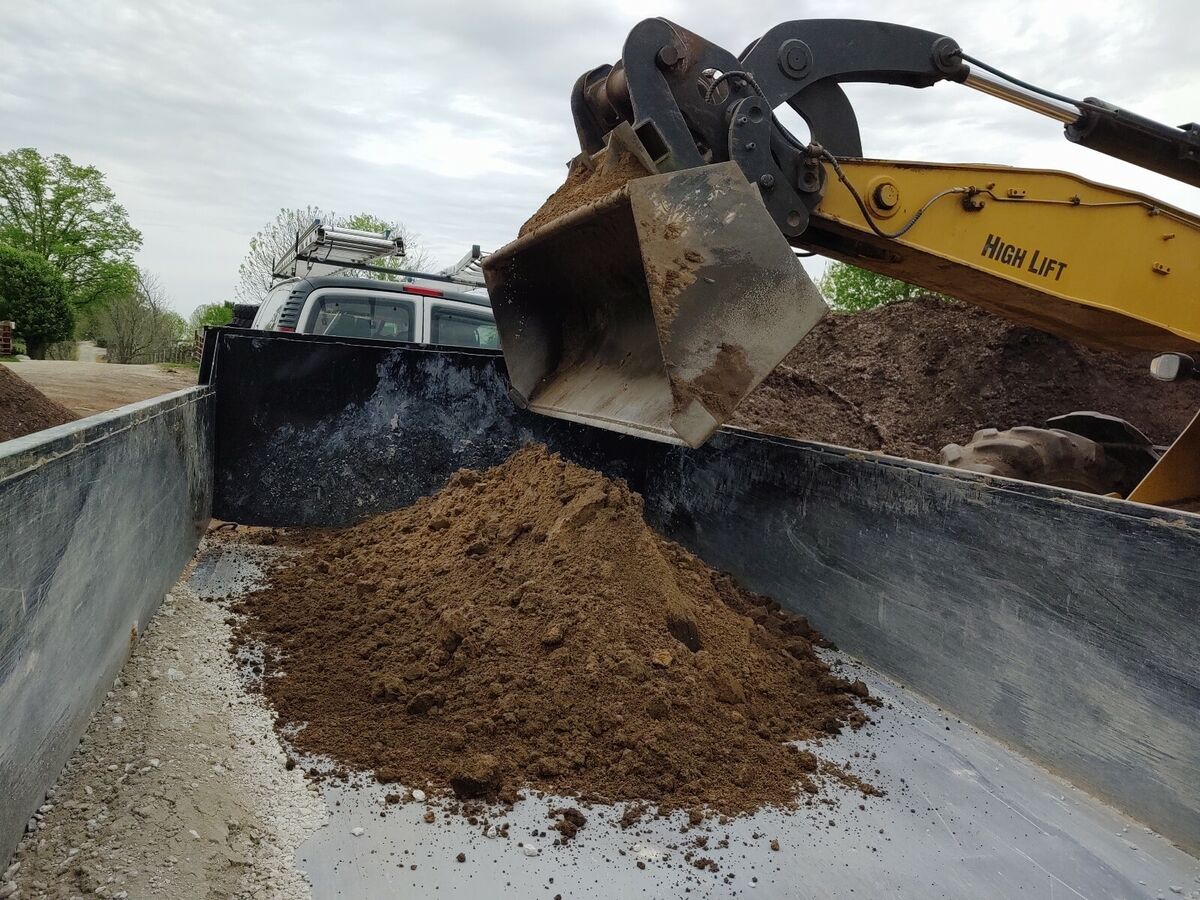

Understanding Soil
How Much Is Topsoil A Ton
Modified: January 22, 2024
Learn about the cost of topsoil per ton and expand your knowledge with our guide on understanding soil. Discover the essentials today!
(Many of the links in this article redirect to a specific reviewed product. Your purchase of these products through affiliate links helps to generate commission for Chicagolandgardening.com, at no extra cost. Learn more)
Table of Contents
Introduction
Soil is the foundation of our natural ecosystem, providing the necessary nutrients for plants to grow and thrive. Among the various types of soil, topsoil holds a crucial position due to its rich composition and fertility. Whether you’re a gardener, landscaper, or farmer, understanding the factors influencing topsoil prices and how much it costs per ton is essential when planning any agricultural or landscaping project.
Topsoil plays a vital role in promoting healthy plant growth by providing essential nutrients, organic matter, and proper drainage. It is the uppermost layer of soil, typically ranging from 2 to 8 inches in thickness, and contains a higher concentration of organic matter compared to deeper soil layers.
The price of topsoil can vary significantly based on various factors. These include geographical location, soil quality, supplier, quantity purchased, and delivery charges. Furthermore, market demand and availability of topsoil can also impact its cost.
Understanding the average cost of topsoil per ton can help you budget your landscaping or gardening project effectively. However, it is important to note that the price can fluctuate depending on market conditions and other factors.
When purchasing topsoil, it’s important to consider the quality you require for your specific needs. Some projects may demand higher-quality topsoil, while others can make do with a less expensive option. Having a clear understanding of your project requirements will help you make an informed decision and ensure that you get the best value for your money.
In this article, we will delve deeper into the various factors influencing topsoil prices, explore the average cost per ton, discuss variations in pricing, and provide some valuable tips on purchasing topsoil to help you make an informed decision for your next landscaping or gardening venture.
Factors Influencing Topsoil Prices
The price of topsoil can vary significantly due to various factors that influence its production, availability, and transportation. Understanding these factors can help you gauge the cost of topsoil per ton and make an informed decision. Let’s explore some of the key factors influencing topsoil prices:
- Geographical Location: The location of the topsoil supplier plays a significant role in determining its price. Suppliers located closer to urban areas may charge higher prices due to increased demand and higher operating costs.
- Soil Quality: The quality of topsoil can vary greatly. Premium topsoil that has been carefully screened and enriched with nutrients may come at a higher price compared to lower-quality soil.
- Supplier and Market Competition: The number of topsoil suppliers in a particular area can influence pricing. Higher competition among suppliers can result in lower prices, while limited competition may drive prices up.
- Quantity Purchased: Bulk purchases of topsoil can often lead to discounted prices. Suppliers may offer lower rates per ton for larger quantities to incentivize customers to buy in bulk.
- Delivery Charges: The cost of delivering topsoil to your location can add to the overall price. Factors such as distance, accessibility, and time required for delivery can impact the delivery charges.
- Seasonal Demand: The demand for topsoil can fluctuate seasonally. During the peak landscaping and gardening seasons, when the demand is high, prices may increase due to the limited availability of topsoil.
It’s important to consider these factors when evaluating the cost of topsoil. While it’s tempting to choose the cheapest option available, it’s crucial to prioritize the quality of the topsoil and consider the specific needs of your project.
Now that we’ve explored the factors influencing topsoil prices, let’s move on to discuss the average cost of topsoil per ton in the next section.
Average Cost of Topsoil per Ton
The average cost of topsoil per ton can vary based on several factors. On average, the price ranges from $20 to $60 per ton. However, it’s important to note that this range can be influenced by geographical location, soil quality, and supplier pricing policies.
In areas where topsoil is readily available and suppliers face higher competition, you can expect to find prices on the lower end of the scale. Conversely, areas with limited topsoil resources or higher operating costs may have higher prices per ton.
Soil quality is another significant factor in determining the cost. Premium topsoil, which has undergone extensive screening, removal of debris, and addition of organic matter and nutrients, will typically be on the higher end of the price range.
It’s important to consider that the average cost of topsoil per ton may not include delivery charges. Depending on the supplier, delivery fees can range from $50 to $100 or more, depending on the distance and accessibility of the delivery location.
It’s always recommended to obtain quotes from multiple suppliers and compare prices. Additionally, inquire about any additional services or discounts they may provide for bulk purchases.
Keep in mind that while price is an essential factor, the quality of the topsoil should not be compromised. Using low-quality or improperly screened topsoil can negatively impact plant growth and overall project success. Thus, it’s worth investing in high-quality topsoil even if it falls on the higher end of the price range.
Now that we’ve covered the average cost of topsoil per ton, let’s move on to discussing the variations in topsoil prices in the next section.
Variations in Topsoil Prices
Topsoil prices can vary significantly based on multiple factors, resulting in variations in pricing. Understanding these variations can help you assess the cost and make an informed decision. Here are some key factors that contribute to variations in topsoil prices:
- Geographical Location: The region where you are located plays a crucial role in determining topsoil prices. Areas with ample topsoil resources and higher competition among suppliers tend to have lower prices. In contrast, areas with limited soil resources or higher transportation costs may have higher prices per ton.
- Soil Quality and Composition: The quality and composition of topsoil can significantly affect its price. Premium topsoil, which is finely screened and enriched with organic matter and nutrients, will generally be more expensive compared to lower-quality options.
- Supplier Pricing Policies: Different topsoil suppliers may have varying pricing strategies. Factors such as production costs, overhead expenses, and profit margins can influence pricing. Some suppliers may offer discounts for bulk purchases, while others may have higher prices due to the use of specialized processes or higher-quality ingredients in their topsoil products.
- Seasonal Demand: The demand for topsoil can vary depending on the time of year. During the peak landscaping and gardening seasons, demand is typically higher, leading to potential price increases. Conversely, during slower months with lower demand, suppliers may offer discounts or promotions to attract customers.
- Additional Services: Suppliers that offer additional services such as soil testing, site preparation, or customized blends may charge higher prices for their topsoil. These added services can contribute to variations in pricing.
It’s essential to research and compare prices among different suppliers in your area. Obtain quotes, inquire about their soil quality standards, and ask for recommendations from other customers to ensure you are getting the best value for your money.
When evaluating topsoil prices, remember to consider the overall quality and suitability for your specific project. While it may be tempting to opt for the cheapest option, compromising on soil quality can have long-term consequences on plant growth and overall project success.
Now that we’ve explored the variations in topsoil prices, let’s discuss the benefits of bulk buying topsoil in the next section.
Bulk Buying Topsoil
When considering purchasing topsoil for your landscaping or gardening project, bulk buying can offer several advantages. Bulk buying refers to purchasing a larger quantity of topsoil, typically measured in cubic yards or tons, at one time. Here are some benefits of opting for bulk buying:
- Cost Savings: One of the primary benefits of buying topsoil in bulk is the potential for cost savings. Suppliers often provide discounted rates per ton or cubic yard for larger orders. By buying in bulk, you can take advantage of these cost savings and reduce the overall expense of your project.
- Consistent Quality: When you buy topsoil in bulk, you can ensure consistency in quality throughout your project. Ordering multiple smaller loads of topsoil may result in variations in soil composition and quality, whereas bulk buying allows you to receive a consistent batch.
- Convenience and Efficiency: Purchasing topsoil in bulk reduces the number of times you need to coordinate delivery or pickup with the supplier. This saves time and effort, making the process more convenient and efficient.
- Flexibility: Buying topsoil in bulk gives you the flexibility to use it for various projects. If you have surplus soil, you can store it properly and use it for future gardening or landscaping needs, eliminating the need for additional purchases.
- Complete Coverage: Many landscaping or gardening projects require a significant amount of topsoil for proper coverage. Bulk buying ensures that you have enough soil to cover the desired area adequately without running out or needing to reorder multiple times.
Prioritize the quantity and quality requirements of your project when considering bulk buying. It is important to assess the space available for storage and ensure proper storage conditions to prevent soil degradation.
Remember to inquire with topsoil suppliers about their bulk buying options, including any discounts or additional services provided for large orders. Compare quotes from different suppliers to find the best balance between cost, quality, and quantity for your specific needs.
In the next section, we will discuss some additional costs to consider when purchasing topsoil for your project.
Additional Costs
When planning to purchase topsoil for your landscaping or gardening project, it’s important to be aware of potential additional costs that may arise. These costs can add to the overall expenses and should be considered in your budgeting process. Here are some additional costs to keep in mind:
- Delivery Charges: Depending on the supplier, there may be delivery charges associated with transporting the topsoil to your location. The cost of delivery can vary based on factors such as distance, accessibility of the site, and the amount of topsoil being delivered. It is essential to inquire about delivery charges and factor them into your overall budget.
- Site Preparation: Before the topsoil can be applied, there may be some site preparation required. This can include tasks such as clearing vegetation, leveling the ground, or removing rocks and debris. If you are unable to do these tasks yourself, hiring professionals for site preparation can incur additional costs.
- Soil Testing: Soil testing is a valuable step to assess the composition and nutrient levels of the topsoil. It ensures that the soil is suitable for your specific gardening or landscaping needs. While soil testing itself may have a separate cost, it is an investment that can help you make more informed decisions and optimize plant growth.
- Additional Amendments or Fertilizers: Depending on the condition of your soil and the specific requirements of your project, you may need to add additional amendments or fertilizers to optimize its fertility. These additional products can add to the overall cost but are essential for ensuring the success of your gardening or landscaping endeavors.
- Equipment Rental: If you choose to complete the project yourself, there may be a need for equipment rental, such as a wheelbarrow, shovels, or a small excavator. These rental costs should be accounted for when budgeting for your topsoil project.
It’s important to obtain detailed quotes and estimates from topsoil suppliers, including any additional costs, to ensure that you have a clear understanding of the total expenses involved. By accounting for these additional costs upfront, you can avoid any surprises and properly budget for your project.
In the next section, we will provide some essential tips for purchasing topsoil to help you make an informed decision and ensure project success.
Tips for Purchasing Topsoil
When it comes to purchasing topsoil for your landscaping or gardening project, it’s important to make an informed decision to ensure the success of your endeavor. Here are some essential tips to consider when purchasing topsoil:
- Evaluate Your Project Needs: Assess the requirements of your project, including the area to be covered and the specific needs of your plants. Determine the quality and quantity of topsoil required to achieve your desired results.
- Research Reputable Suppliers: Take the time to research and review different topsoil suppliers in your area. Look for suppliers with a good reputation and positive customer reviews. Inquire about their soil quality standards, screening processes, and any relevant certifications they may have.
- Obtain Multiple Quotes: Request quotes from several suppliers to compare prices, delivery charges, and additional services offered. Ensure that you are receiving accurate and detailed quotes that include all potential costs involved.
- Inspect the Topsoil: If possible, visit the supplier’s location and inspect the topsoil before making a purchase. Look for soil that is dark, crumbly, and free from debris such as rocks, roots, or excessive clay.
- Ask About Soil Amendments: Inquire whether the supplier offers additional products or services, such as organic amendments or custom soil blends, that can enhance the fertility and quality of the topsoil for your specific project needs.
- Consider Delivery Options: Discuss delivery options and any associated charges with the supplier. Ensure that you provide accurate information about the delivery location, including accessibility, to avoid any delivery issues or unexpected costs.
- Consider Bulk Buying: If feasible for your project, consider purchasing topsoil in bulk to take advantage of potential cost savings. Ensure that you have sufficient storage space and proper storage conditions for any surplus topsoil.
- Check for Warranty or Guarantee: Inquire whether the supplier provides any warranty or guarantee for their topsoil. A reputable supplier will stand behind the quality of their product and be willing to address any issues that may arise.
- Plan for Site Preparation: Take into account any necessary site preparation tasks, such as clearing vegetation or leveling the ground, and allocate time and resources accordingly.
- Verify Soil Testing: If you opt for a soil test, ensure that the supplier carries out the testing process or can provide you with reliable soil analysis from a reputable laboratory.
By following these tips, you can make an informed decision when purchasing topsoil and set the foundation for a successful landscaping or gardening project.
In the final section, we will wrap up the article with a brief summary of the key points discussed.
Conclusion
Understanding the factors that influence topsoil prices and how to effectively purchase topsoil is crucial when planning a landscaping or gardening project. By considering the geographical location, soil quality, supplier pricing policies, and seasonal demand, you can gain insights into the average cost of topsoil per ton and make an informed decision. Additionally, variations in topsoil prices can be influenced by factors such as supplier competition, soil quality, and additional services provided.
Bulk buying topsoil offers several advantages, including cost savings, consistency in quality, convenience, and the ability to store surplus soil for future projects. However, it’s essential to consider any additional costs such as delivery charges, site preparation, soil testing, and equipment rental to ensure accurate budgeting.
When purchasing topsoil, it’s important to research reputable suppliers, obtain multiple quotes, inspect the topsoil, and inquire about any additional products or services they offer. Considering factors like delivery options, bulk buying, and warranty or guarantee can further contribute to a successful topsoil acquisition.
By following these tips and considering the specific needs of your project, you can make an informed decision when purchasing topsoil and set the foundation for successful plant growth and project outcomes. So, take the time to thoroughly research, evaluate, and plan your topsoil purchase to ensure a fruitful and satisfying landscaping or gardening experience.
